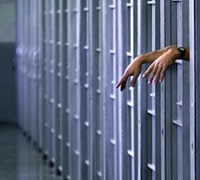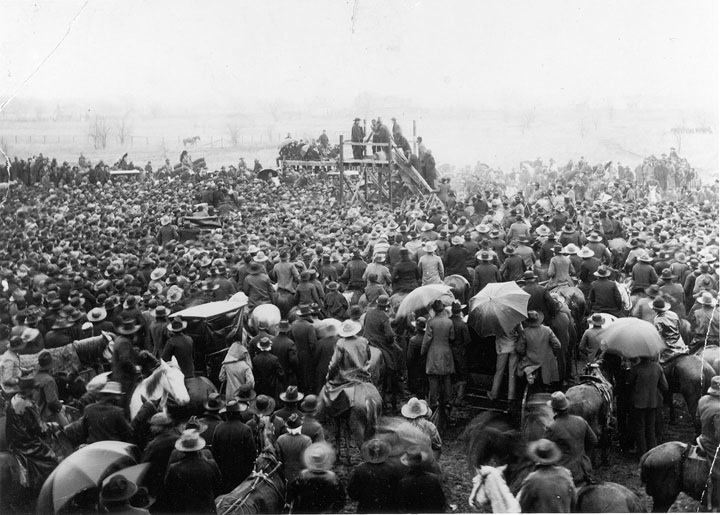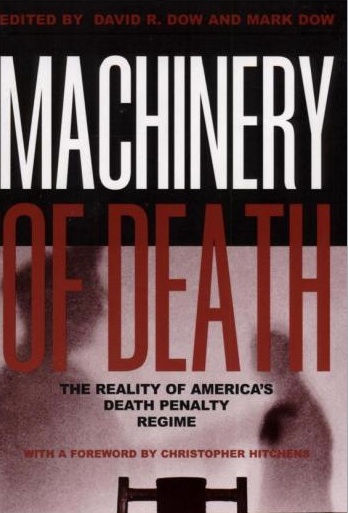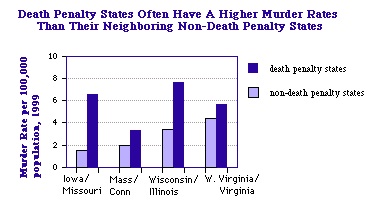
Back to Americans For Morality Home Page
The Death Penalty
 Of all the moral issues on this site, this may be the most difficult to flesh out as an issue of the Democratic Party. Bill Clinton was actually in favor of the death penalty. So, if your vote was held back because you thought all Democrats opposed the death penalty, you would be wrong. However, it is included on this website, because, like other life or death issues, which include war and abortion, it is a moral issue that is hotly debated.
Of all the moral issues on this site, this may be the most difficult to flesh out as an issue of the Democratic Party. Bill Clinton was actually in favor of the death penalty. So, if your vote was held back because you thought all Democrats opposed the death penalty, you would be wrong. However, it is included on this website, because, like other life or death issues, which include war and abortion, it is a moral issue that is hotly debated.
What we would like to discuss on this site are some of the facts surrounding the death penalty and why it is that more Democrats oppose the death penalty than do Republicans. You see, it stems from a specific world view held by most Democrats. What is that world view? If you ask the Religious Right, it is that Democrats are evil, godless, and want evil people to be let out of jails to take over the United States of America, spreading sin, disease, and hedonism in their wake. On the other hand, if you actually ask Democrats about their world view, you will find people who want to have forgiving hearts. You will find people who see themselves as imperfect and want to see their neighbor as themselves. You will also discover that Democrats, by and large, want people to have an opportunity to repent, and have the freedom to change their ways and learn their lessons. Because of their commitment to peace and their desire to help the weakest among us, Democrats are often called "bleeding hearts."
 Unfortunately the term "bleeding hearts" is often used as a derogatory term by Republicans saying that Democrats make their decisions with their emotions and not their heads. Ironically, the death penalty is worth discussing because it is one of the main issues in which these tables are turned. Those that support the death penalty, which is mostly the Religious Right, usually do so for emotional reasons first. If you are a thinking person, there are some ideas and facts you should take into consideration when making a moral decision about capital punishment.
Unfortunately the term "bleeding hearts" is often used as a derogatory term by Republicans saying that Democrats make their decisions with their emotions and not their heads. Ironically, the death penalty is worth discussing because it is one of the main issues in which these tables are turned. Those that support the death penalty, which is mostly the Religious Right, usually do so for emotional reasons first. If you are a thinking person, there are some ideas and facts you should take into consideration when making a moral decision about capital punishment.
But what if it were a member of your family that was killed? Exactly right. That's why we depend on the state to keep us from making emotional decisions-and that's exactly what it would be in such a case.
Before the logical arguments, let's begin with some religious ones. If you know your scriptures, you probably know that the book of Genesis tells the story of first murder by Cain. Interestingly, Cain didn't merit a death penalty. Just the opposite. Not only was Cain spared by God, but a "mark" was placed upon him lest any finding him should kill him. In fact, the story goes that God threatened sevenfold vengeance against anyone who harmed him.
What about Ezekiel 33?
I have no pleasure in the death of the wicked; but that the wicked turn from his way and live.
What about David killing Uriah? God never exacted a death penalty.
 The Catholic Church is one of the first churches to take a principled stand against the death penalty. In 1999 American Catholic Bishops released the following statement on Good Friday:
The Catholic Church is one of the first churches to take a principled stand against the death penalty. In 1999 American Catholic Bishops released the following statement on Good Friday:
"Increasing reliance on the death penalty diminishes all of us and is a sign of growing disrespect for human life. We cannot overcome crime by simply executing criminals, nor can we restore the lives of the innocent by ending the lives of those convicted of their murders. The death penalty offers the tragic illusion that we can defend life by taking life. Through education, through advocacy, and through prayer and contemplation on the life of Jesus, we must commit ourselves to a persistent and principled witness against the death penalty, against a culture of death, and for the gospel of life."
On December 3, 1998, the Most Rev. David B. Thompson, Bishop of Charleston, S.C. stated:
"Capital punishment feeds the cycle of violence in society by pandering to a lust for revenge. It brutalizes us, and deadens our sensitivities to the precious nature of every single human life."
 State Interest
State Interest
Now to more logical arguments. In 1970 on 1 in a thousand people were in prison. Today, it is 7 out of a thousand. Most for non-violent crimes. This is the highest incarceration rate in the world. Why? What sets us apart from the rest of the world? Do we actually have more crime here than anywhere else? Let's look at some other things that set us apart.
90% of all known executions are carried out by China, Iran, Saudi Aabia, and the U.S.
In fact, our nation is the only organized government that refused to ratify the International Covenant on the Rights of the Child, which prohibits execution for crimes committed by children. However, in March 2005, our Supreme Court finally voted five to four to outlaw juvenile executions. Interestingly enough, it was the Religious Right that were upset by this decision. After the decision, most were echoing the lamentations of Judge Scalia that the court can't be the "arbiter of our nation's moral standards." In other words, let each state decide if killing is a moral issue and if there should be laws against it. Scalia's distaste for judicial review is evident only when it suits his own religious values. In his opinion, attempting to overturn Roe v. Wade, he asserted that abortion is not a liberty protected by the Constitution, because the Constitution does not mention it. So, according to this reasoning, how is the death penalty, also unmentioned, a liberty protected by the Constitution?
A deterrent?
 One of the primary arguments of those supporting the death penalty is that it is supposed to deter homicide. If we take our emotions out of it and simply study the facts, we will find that that is simply not the case. In fact, it may well be having the opposite effect! Here are some facts:
One of the primary arguments of those supporting the death penalty is that it is supposed to deter homicide. If we take our emotions out of it and simply study the facts, we will find that that is simply not the case. In fact, it may well be having the opposite effect! Here are some facts:
Fact: The homicide rate is more than 5 times greater in the US that ANY European Country, none of which authorized the death penalty.
Fact: In comparing the rate of death by handguns in eight industrialized countries, the United States stands out with a rate of death by handguns that is much higher than the rate of other countries. The United States is also the only country of the eight to retain use of the death penalty. In most foreign countries, gun control laws are more restrictive and gun owners are assigned more responsibility. (Washington Post, 4/4/98) Here is a graph of some countries and their rates of homicide compared to ours:
Fact: The Southern States (the Bible belt) carry out over 90% of the executions but have a higher murder rate than any other region.
Fact: It isn't simply regional. States like South Dakota, Connecticut and Virginia that have the death penalty have a higher murder rater than adjacent states of North Dakota, Massachusetts, and West Virginia that do not! Take a look at this graph of adjacent states:
Fact: During the last 20 years the homicide rate in states with the death penalty has been 48% - 101% higher than in states without the death penalty.
Fact: A 1995 Hart Research poll of US police chiefs found that 67% do not believe the death penalty reduces the homicide rate. They ranked the death penalty last among effective ways of reducing violent crime._ Here is the chart:
Fact: According to statistics from the latest FBI Uniform Crime Report, regions of the country that use the death penalty are the least safest for police officers. Police are most in danger in the South, which accounts for 90% of all executions (2000 figure).
To read detailed facts about deterrence and the death penalty click here.
 Cost?
Cost?
Fact: The investigation costs for death-sentence cases are about 3 times greater than for non-death cases.
Fact: The trial costs for death cases are about 16 times greater than for non-death cases ($508,000 for death case; $32,000 for non-death case).
Fact: The appeal costs for death cases are 21 times greater.
The costs of carrying out (i.e. incarceration and/or execution) a death sentence are about twice the costs of carrying out a non-death sentence in a comparable case.
Fact: Trials involving a death sentence averaged 34 days, including jury selection; non-death trials averaged about 9 days.
 Mistakes?
Mistakes?
Our system of justice was set up with not only a presumption of innocence, but also set up so that we as a country would rather allow a guilty party to go free rather than condemn the innocent. This is something of which our nation is proud and we should be. However, with the advent of DNA testing, it has been found that many on death row are actually not guilty. Illinois governor George Ryan declared a moratorium on executions when he learned that thirteen condemned inmates were innocent of capital crimes.
Racial Bias
People are alive today who fought the Civil Rights laws of 1964. Allowing blacks to vote, own property, or even live in "white" neighborhoods was fought by people still involved in public office-especially in the South, where, as we already said, 90% of the executions take place. There is clearly a disproportionate amount of blacks on death row, especially in these states.
Still today, the combination of an African American defendant and a white victim is most likely to result in a death sentence. Rarely has it ever worked the other way around. In the southern so-called "Bible Belt", in cases like these, when a verdict was handed down against the black defendant, the people would periodically break down the prison doors, drag out the defendant and lynch him publicly-and this was done by many who are still alive today! And this was not just a few people. We're talking huge mobs. Here's a picture of such a lynching:
Time in Jail
People spend on average 15 years on death row with some up to 30 years! In 2004, a 74-year-old man was put to death in Alabama - the oldest inmate executed in the United States in more than six decades - for a murder he committed in 1977. Before his execution, J.B. Hubbard forgot who he was at times because of dementia. He suffered from colon and prostate cancer, and was so weak that other inmates sometimes walked him to the shower and combed his hair. What is the logic in all this time?
Today
In 2006, South Carolina expanded their death penalty to included repeat sex offenders of children. In the heat of emotion, the state forgot to consider the fact that the incentive to keep the child alive was now taken away. In addition, family members suddenly became unwilling to turn in perpetrators of these horrible crimes. Laws like this will always backfire in this way. This is why people need to think logically and not emotionally when creating such important legislation.
Even more from members of the Republican Party are calling to expand the death penalty to other things that do not involve murder. Here is a picture from the recent rally in Washington DC to support President Bush's Marriage amendment. Yes, we even give these people a right to vote:
There are so many issues that destroy credibility and reasoning behind the death penalty including issues such as the arbitrary nature of its application, the costs, the racial components, mental illness and retardation, or the truth of its deterrent effect. How many Americans actually study the facts regarding these subjects, and then are introspective enough to study their own psychology and decide what reasons are left to support the death penalty? (See the link below to study all of the issues). We can't cover all of the issues here, but we certainly can try to make the case that this is a moral issue that is more complex than most people are willing to admit.
Back to Americans For Morality Home Page
Links and Further Reading
For a great collection of quotes by religious leaders on the subject with links to other famous quotes go to:
http://freenet-homepage.de/dpinfo/religiousleaders.htm
For a compilation of almost every facit of the subject visit www.deathpenaltyinfo.org
 The Death Penalty on Trial: Crisis in American Justice,
by Bill Kurtis
The Death Penalty on Trial: Crisis in American Justice,
by Bill Kurtis
After 30 years as a CBS reporter and producer, Kurtis, now the host of American Justice on A&E, re-examines his lifelong support of the death penalty, creating logical and thoughtful arguments that the risk of executing the wrong person is too great to allow capital punishment to continue. Kurtis presents dark and at times painful descriptions of various murders as a foundation for arguing that horrible acts of violence can create a visceral belief that the death penalty is justified. Kurtis's refusal to back away from these dark realities makes his indictment all the more compelling. The book doesn't deal in abstractions but cuts to the idea that our criminal justice system is too "rife with the potential for error... to make death its product."
 Machinery of Death: The Reality of America's Death Penalty Regime,
by David R. Dow
Machinery of Death: The Reality of America's Death Penalty Regime,
by David R. Dow
This volume brings together lawyers, prison officials, social workers, journalists, and relatives of murder victims who have intimate knowledge of the machinery of the death penalty.
"A thoughtful and compelling book written by people who struggle on the front lines with the machinery of death. It exposes the critical fault-lines: how race and poverty continue to matter; how innocent people can end up on death row; and how constitutional rights are routinely ignored by state and federal judges. Anyone who wants to know how the death penalty really works in America should read this book."-Barry Scheck
Back to Americans For Morality Home Page


 Of all the moral issues on this site, this may be the most difficult to flesh out as an issue of the Democratic Party. Bill Clinton was actually in favor of the death penalty. So, if your vote was held back because you thought all Democrats opposed the death penalty, you would be wrong. However, it is included on this website, because, like other life or death issues, which include war and abortion, it is a moral issue that is hotly debated.
Of all the moral issues on this site, this may be the most difficult to flesh out as an issue of the Democratic Party. Bill Clinton was actually in favor of the death penalty. So, if your vote was held back because you thought all Democrats opposed the death penalty, you would be wrong. However, it is included on this website, because, like other life or death issues, which include war and abortion, it is a moral issue that is hotly debated. Unfortunately the term "bleeding hearts" is often used as a derogatory term by Republicans saying that Democrats make their decisions with their emotions and not their heads. Ironically, the death penalty is worth discussing because it is one of the main issues in which these tables are turned. Those that support the death penalty, which is mostly the Religious Right, usually do so for emotional reasons first. If you are a thinking person, there are some ideas and facts you should take into consideration when making a moral decision about capital punishment.
Unfortunately the term "bleeding hearts" is often used as a derogatory term by Republicans saying that Democrats make their decisions with their emotions and not their heads. Ironically, the death penalty is worth discussing because it is one of the main issues in which these tables are turned. Those that support the death penalty, which is mostly the Religious Right, usually do so for emotional reasons first. If you are a thinking person, there are some ideas and facts you should take into consideration when making a moral decision about capital punishment.  The Catholic Church is one of the first churches to take a principled stand against the death penalty. In 1999 American Catholic Bishops released the following statement on Good Friday:
The Catholic Church is one of the first churches to take a principled stand against the death penalty. In 1999 American Catholic Bishops released the following statement on Good Friday: State Interest
State Interest One of the primary arguments of those supporting the death penalty is that it is supposed to deter homicide. If we take our emotions out of it and simply study the facts, we will find that that is simply not the case. In fact, it may well be having the opposite effect! Here are some facts:
One of the primary arguments of those supporting the death penalty is that it is supposed to deter homicide. If we take our emotions out of it and simply study the facts, we will find that that is simply not the case. In fact, it may well be having the opposite effect! Here are some facts:


 Cost?
Cost? Mistakes?
Mistakes?

 The Death Penalty on Trial: Crisis in American Justice,
by Bill Kurtis
The Death Penalty on Trial: Crisis in American Justice,
by Bill Kurtis  Machinery of Death: The Reality of America's Death Penalty Regime,
by David R. Dow
Machinery of Death: The Reality of America's Death Penalty Regime,
by David R. Dow